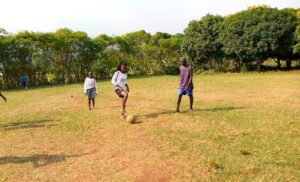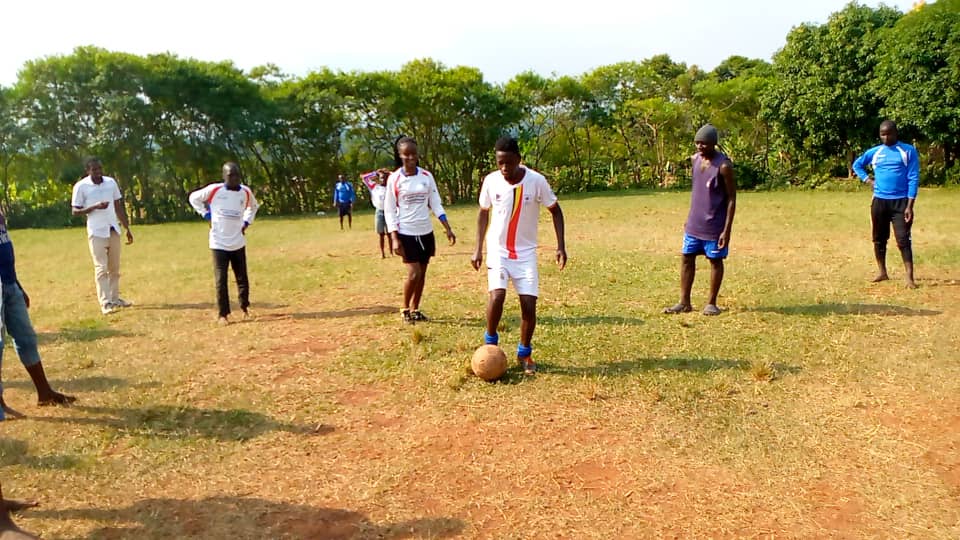S.A.L.V.E. International is an NGO working to improve the plight of street connected children in Jinja and to ensure that there is “No Street Called Home”. S.A.L.V.E. runs a variety of services, including Street Outreach activities where social workers come to the streets to talk to children, provide counselling and encourage children to attend one of our Drop in Centres.
Working Together to Recover from Drug Abuse
At our Drop in Centres, social workers engage with children to better understand the different circumstances that influenced their decision to come to the streets. Furthermore, social workers engage children in practical learning sessions where they can acquire life skills that help in mentoring and changing their mindset, empowering them to leave the streets. At the same time, children are engaged in both outdoor and indoor activities. Engaging in sports and local games like ”Omweso” (a two-player strategy board game) helps them improve their relationship with other children and the staff.
Afterwards, when the children show they are positive to leaving the streets with our support, they are then referred to one of the S.A.L.V.E. rehabilitation homes, for example, one of our Halfway Homes or Drug Rehabilitation Centre.
‘Halfway’ on the Journey Back Home
Children who have lived on the streets and who are not addicted to drugs are referred to one of our Halfway Homes, where social workers welcome them and work closely towards helping the child to plan for their future so that they can be happily resettled in their homes. The staff engage them in practical life skills sessions and work closely with their parents to rebuild the bonds between them and their child.
Children who are addicted to drugs like ”Mafuta” (aeroplane fuel) are referred to the Drug Rehabilitation Centre (DRC). On admission to the DRC, children receive psychiatric services that include detoxification, mental health support, and cognitive and behavioural change therapies that help to improve their wellbeing. While at the Centre, social workers engage the children in counselling, in the form of both individual and group sessions. These services are provided to support children in overcoming their challenges in life and to help them be resettled at home afterwards.
The Healing Power of Sports
More activities, like sports, are done at all our centres. These sports include football, netball, volleyball and other local sports activities, and these activities have really helped. In particular, sports are especially important for the drug addicted children in detoxifying their bodies; during sports, they sweat and expel some of the drugs in their system. For all children getting exercise, which keeps them healthy is important. Sports activities also act as a form of occupational therapy, keeping the children active so that they don’t think about drugs or their difficult pasts.
Sports also help in instilling good behaviour among children at the Centre. It creates social bonds between them, and helps to improve their relationships with one another. Children who have lived on the streets often lose hope in life, and sports are one way to restore those hopes – these can be competitive games, and they develop self confidence and teamwork. In conclusion therefore, sports activities have helped in the process of effective rehabilitation. They ensure that children can return to their families with healthy minds and be hopeful and confident about their lives again.





0 Comments